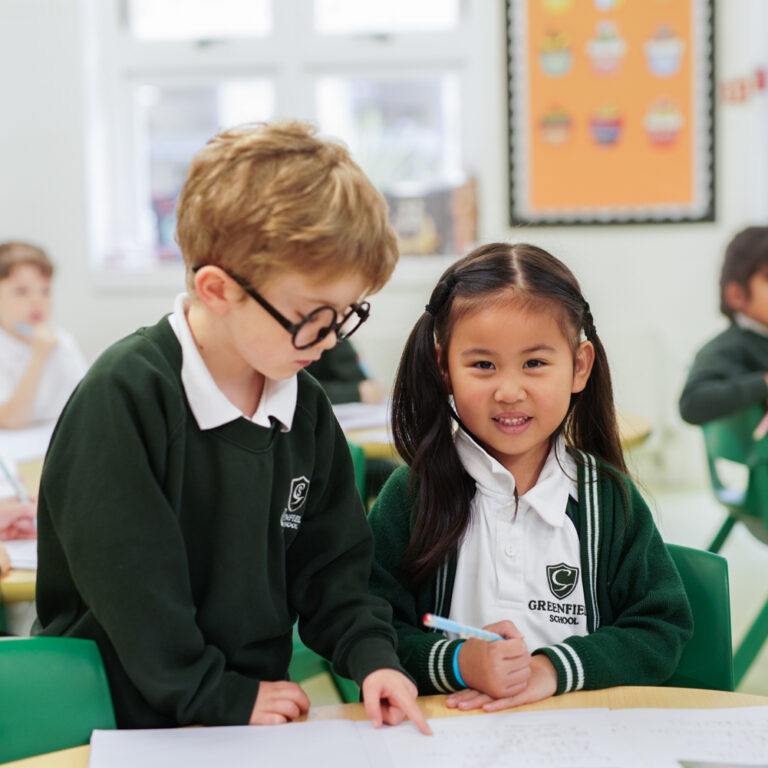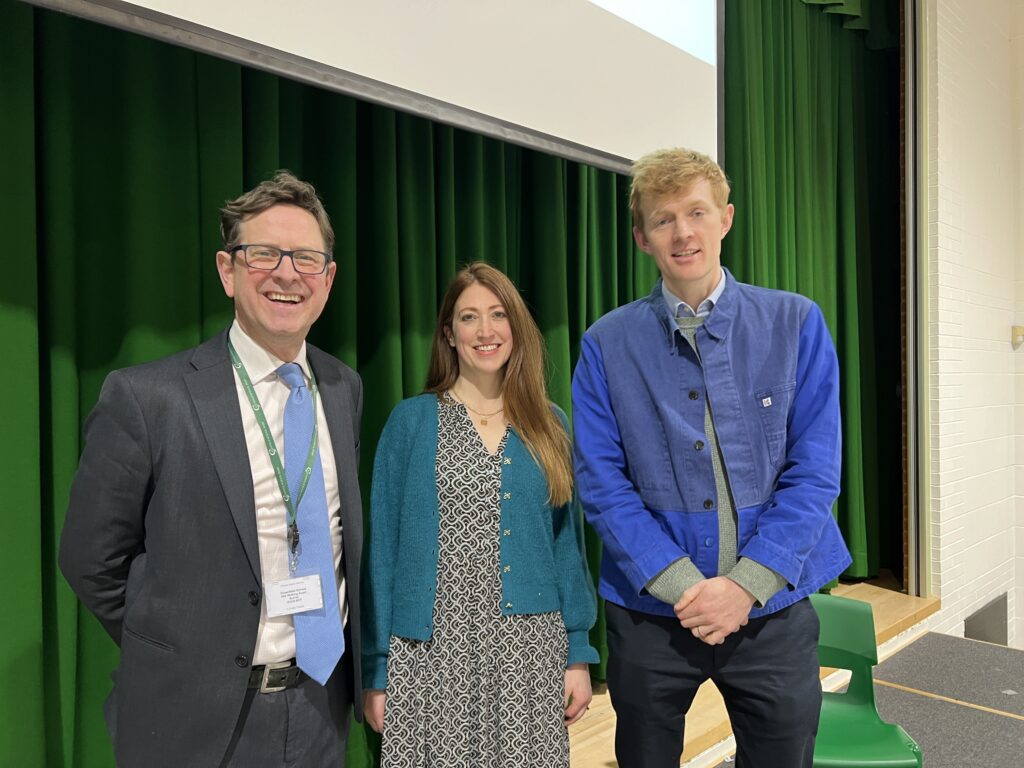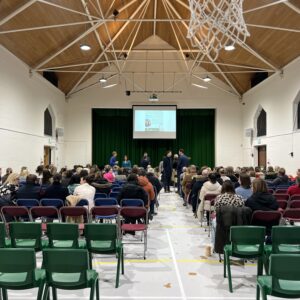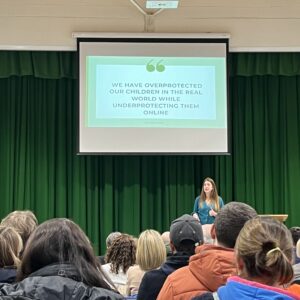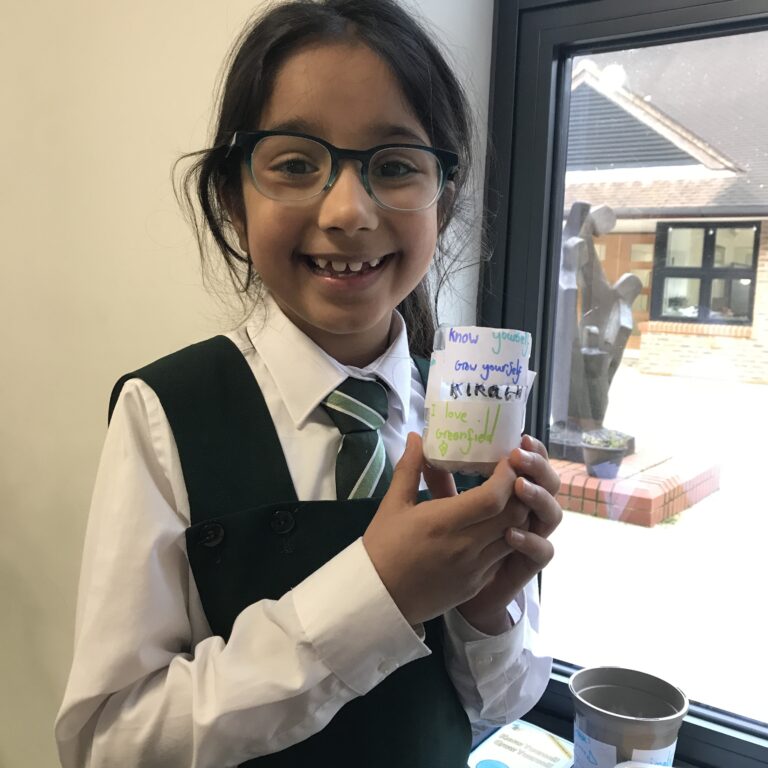On the evening of Tuesday 11th February, Greenfield School played host to parents from across Surrey who came to hear a presentation delivered by Jennifer Powers on behalf of Papaya, the Parents Against Phone Addiction in Young Adolescents charity, and William Orr-Ewing, the Engagement Lead for Smartphone Free Schools Campaign.
This extremely well-received event was organised in conjunction with the Friends of Greenfield School (FroGS) and the Smartphone Free Childhood Woking Division, who spread the word far and wide to ensure that as many families and school leaders as possible had access to this free event.
Head at Greenfield School, Mr. Matt Robinson, welcomed Greenfield families and visitors and reiterated his support for the Smartphone Free Childhood campaign, as a parent who has seen the impact it can have on teenagers first-hand, and an advocate for the benefits of quality screen-free family time.
Also in attendance were Heads from local schools: Halstead St Andrew’s School, Hoe Bridge School, King Edward’s School Witley, Prior’s Field School Godalming, St Catherine’s School Bramley and Tormead School Guildford, all of whom kindly spoke about their school’s individual approach to smartphones.
The audience consisted of parents of children ranging from the very young to teenagers and beyond, who were each at varying stages of their ‘children, smartphones and apps’ journey, as well as teachers and school leaders who work in some of our local schools. Everyone listened intently as Jennifer’s presentation covered evidence from various studies and touched on her own experiences, as well as those from families she’s met through her work with Papaya.
One of Jennifer’s most convincing arguments for delaying access to smartphones until the at least the end of Year 9, was the reminder that content online is targeted and, unfortunately, not a great deal is being done to limit the harmful content aimed towards our children. “One third of the eyeballs online belong to children”, she remarked; another reason, perhaps, why action is not forthcoming from the leaders in these industries.
Of course, the impact of peer pressure and a desire by parents not to “cut-off” contact between their child and friends often sways the decision to provide a smartphone from Year 7. Jennifer provided many reassuring examples of parents who have found ways around this, by utilising a so-called ‘brick phone’ to introduce a sort of ‘landline for the modern age’ and highlighted the expanding market of available ‘dumb phones’ with heightened restrictions to the internet.
Evidence showing the startling links between smartphone use and poor mental health, including self-harm, was extremely compelling and this, delivered in conjunction with statistics from those who have already implemented change, left many members of the audience ready to take action in their household or their schools. The schools in attendance all took the matter very seriously and while some had implemented robust processes to ensure their schools were smartphone-free, others had a more graduated trust-based system. However, all the schools acknowledged that there was more to be done and pledged to take the important messages they heard back to their schools for further discussion.
Will Orr-Ewing, leader of the Smartphone Free Schools campaign group, gave a roundup of some of the ways in which schools are managing their pupils’ access to smartphones during school hours. He noted that schools who had implemented phased or total bans on smartphones in school had seen marked improvements in concentration, behaviour and general wellbeing among pupils, with one school claiming a spontaneous round of applause from pupils (yes, you did read that correctly!) when they announced that the Year 7 phone ban would be rolled out up to Year 9. Could it be true that our children are crying out for greater control over this largely uncontrolled online world?
The Q&A session towards the end of the evening raised important points such as when schools “require” the children to have access to an app to complete homework, and whether or not the school bus or public transport should count as “school premises” with regard to smartphone usage. The forum gave credence to the concerns of parents and both Jennifer and Will provided excellent advice on the various ways in which access to smartphones and apps can be limited or removed until it is felt appropriate to introduce them. Their message to parents was very clear: you can choose when to give your child a smartphone and you should feel empowered to do what you feel is right for your family.
Surrey families are clearly at the forefront of change with regard to smartphone access for their children and teenagers. One of Smartphone Free Childhood’s recent endeavours is the Parent Pact, which invites parents to join a growing community of parents choosing to wait to give their child a smartphone until at least the end of Year 9. We are pleased to report that, as of lunchtime on Wednesday 12th February, the Surrey parent pact has been signed by over 6000 parents and pacts signed by Greenfield families are now over 120.
Parents interested in finding out more about the Smartphone Free Childhood campaign are encouraged to attend the next SFC Woking meeting to be held at Greenfield School on the evening of Friday 7th March.

